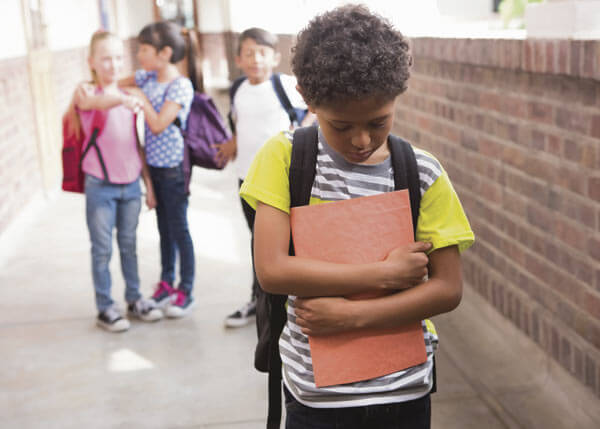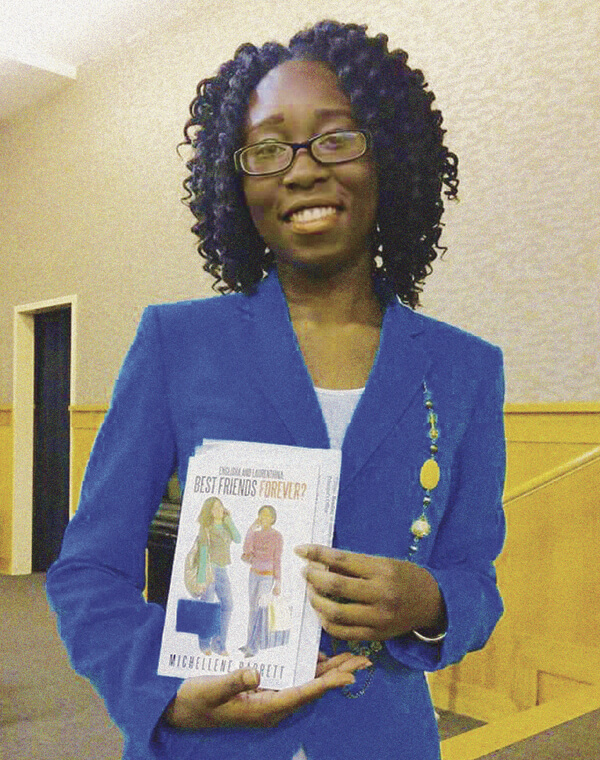
My Child Might Be a Bully: What Do I Do?
Parents think the world of their children, and many would love to think they can do no wrong. No parent wants to be told their child is a bully. Getting this information can turn a parent’s world upside down, and your first instinct may be to react with denial or shame.
We sat down with therapist Jennifer Kelman from JustAnswer to talk about how parents can recognize if their child is bullying others and what they should do about it.
What should parents do when confronted with the possibility that their child is a bully?
When parents realize that their child may be a bully, the most important thing for them to do is listen and get a full understanding of what’s going on.
“A lot of times parents run into problems in terms of dealing with the issue because they’re in such disbelief,” Kelman says. “They feel shame, so they would prefer to just pretend it doesn’t exist, let it go away, not really tackle the issue, which, of course, doesn’t help the child.”
It may be shocking to learn that your child is bullying someone, but once the initial shock and disbelief wear off, it’s important to listen to perspectives from both your child as well as the person informing you of your child’s behavior.
Kelman also says that while our initial instinct is to vilify bullies, parents should resist that urge, because doing that overlooks the idea that that child might be suffering.
“What I like to think about is oftentimes the loudest in the room is the one that’s suffering the most,” Kelman says. “Rather than quickly vilifying the behavior of that child, really check in with your child to see what might be going on for them.”
Why do children bully?
It’s important to look for the root cause behind a child’s bullying behavior because “it’s not by accident that someone just tries to assert power over others,” Kelman says.
Many times, bullying behavior stems from feeling powerless. For example, a child might be trying to make their way into a popular social group or maintain their social status and use bullying behaviors as a way to gain standing.
It’s also important to examine what’s going on in the child’s family unit. If there’s conflict in a child’s family unit, they may be modeling behaviors that they’re seeing at home or reacting to that conflict by lashing out instead of talking about what they’re feeling.
In other cases, bullying behavior might be linked to a traumatic event or sudden change in the child’s life, like the loss of a loved one or moving.
Looking at possible root causes for bullying behaviors is the most effective way to stop those behaviors.
“The best way to help both the victim and the bully is to understand what might be the impetus for the bullying behavior,” Kelman says.
What are some signs that might indicate bullying behavior that parents should look out for?
In the same way that listening to your child is the key to stopping bullying behavior, listening to your child is the key to recognizing patterns that could indicate potential bullying behavior before it gets out of control.
“Listen to how your child is talking about other students at school,” Kelman says. “Check in with your child to see how school is going, how they’re connecting to others.”
When your children are at home, take note of how they handle frustrating moments. Does your child handle frustrating moments with aggression, or are they able to communicate how they’re feeling verbally?
Listening to your child and looking at what’s going on in their life is a crucial part of understanding their behavior, especially when bullying is involved.
If initial attempts to stop bullying behavior don’t work, what do next steps look like?
Sometimes, bullying behaviors continue, even after parents have attempted to handle it themselves. Parents should approach receiving additional help with an open mind.
“Let that shame and embarrassment fall by the wayside so that you can help your child better,” Kelman says.
This additional help can look like resources from the school, like guidance counselors, or supportive psychotherapy to more effectively figure out the cause of the bullying behavior.
What can parents do to instill values like empathy and respect to stop bullying behaviors before they start?
Parents should start by looking at themselves and evaluating what kind of example they’re setting for their children at home in terms of behavior.
“Look inward to see how you respond to things,” Kelman says. “Empathy can’t generally be taught, but it can be modeled.”
Children tend to learn modeled lessons more effectively than verbal lessons.
“If they witness a parent modeling good behavior and empathy, the chances are better for that child to respond to situations that are frustrating in the same manner,” Kelman says.
It’s also important to remember that children don’t usually have the same skills to handle frustrations that adults do. Be prepared to help them along the way: ask them how they’re feeling and how they can handle a problem they’re facing.
This can work for practicing empathy, too. Challenge them to put themselves in others’ shoes and think about what they’re feeling.
“Giving the child the ability to put themselves in the place of another person can certainly help,” Kelman says.
Listening to children is the key to setting them up for success.
“It’s just not by accident that someone needs to wield all that type of power and do it in a bad way,” Kelman says. “And remember, the loudest in the room is usually the one suffering the most.”
Psst… Here are the best places for trick or treating in New York City!






















